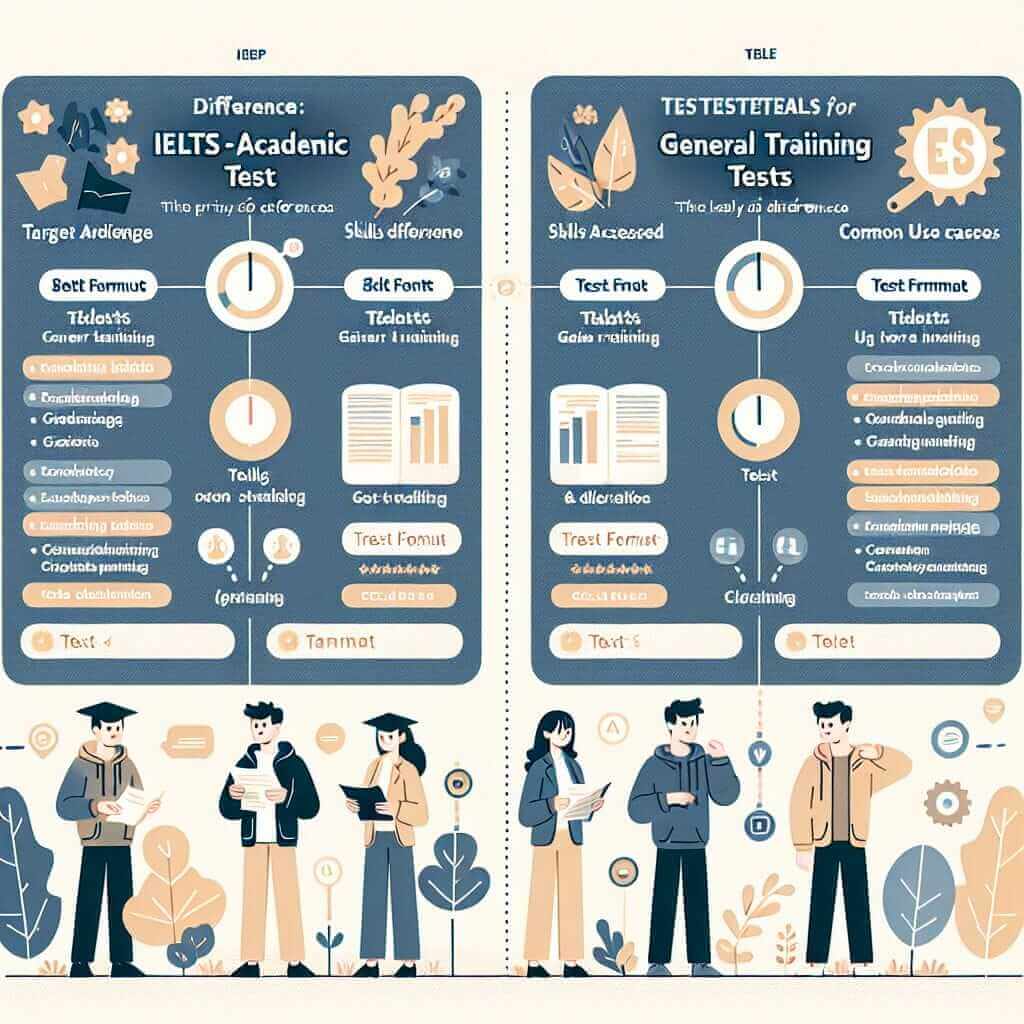So, you’re aiming for that coveted scholarship and know IELTS is part of the equation. But wait, which IELTS test should you take: Academic or General Training? This is a question I hear almost daily as an IELTS instructor with over two decades of experience. Understanding the difference is crucial, as choosing the wrong test could affect your scholarship application.
Let’s break down this critical decision to help you confidently conquer the path to your academic future.
Understanding the Difference: Academic vs. General Training IELTS
The first step is understanding what each test assesses:
IELTS Academic
This test is your go-to if you’re eyeing undergraduate or postgraduate studies or seeking professional registration in a native English-speaking country. The IELTS Academic delves into your ability to:
- Comprehend academic texts: Think journals, research papers, and textbooks.
- Write analytically and critically: You’ll be expected to analyze data, construct arguments, and present your findings cohesively.
- Understand and use a wide range of vocabulary: Academic writing demands precision and sophistication in language.
IELTS General Training
This version focuses on everyday English skills necessary for work experience, training programs, or migration to countries like Australia, Canada, or the UK.
- Everyday communication: The emphasis here is on your ability to understand and use English in practical, social contexts.
- Workplace situations: You’ll encounter scenarios related to work communication, job applications, and training environments.
- Basic academic skills: While not as demanding as the Academic test, you’ll still need to read and write straightforward texts.
Does Your Scholarship Specify?
The most straightforward answer often lies within the scholarship requirements themselves.
- Check the fine print: Many scholarships explicitly state whether they require the IELTS Academic or General Training test.
- Contact the provider: If unsure, don’t hesitate to contact the scholarship provider directly. They can guide you on the specific test and minimum score needed for your application.
General Guidelines for Scholarships
While specific requirements vary, here’s a general rule of thumb:
- Academic-focused scholarships: If the scholarship is for a degree program (Bachelor’s, Master’s, Ph.D.), research grant, or involves a highly academic field, the IELTS Academic is usually the preferred choice.
- Vocational or training scholarships: Scholarships geared towards vocational training, apprenticeships, or work-related programs often accept the IELTS General Training.

Example Scenario:
Let’s say you’re applying for the prestigious “Chevening Scholarship” for a Master’s program in the UK. This scholarship explicitly requires the IELTS Academic test with a minimum score, often requiring a 7.0 or higher.
On the other hand, a scholarship for a hospitality management program that includes an internship might accept the IELTS General Training.
Tips for Success
- Start early: Give yourself ample time to prepare for the IELTS test, whichever version you choose.
- Understand your strengths and weaknesses: Identify your strong suits and areas that need improvement to tailor your preparation effectively.
- Practice, Practice, Practice: Familiarize yourself with the test format, practice sample questions, and simulate test conditions to build confidence.
In Conclusion
Choosing the right IELTS test is crucial for your scholarship application. Carefully reviewing the requirements and understanding the nuances of each test version will set you up for success on your path to academic funding. Remember, the IELTS journey requires dedication and focused effort. Good luck!